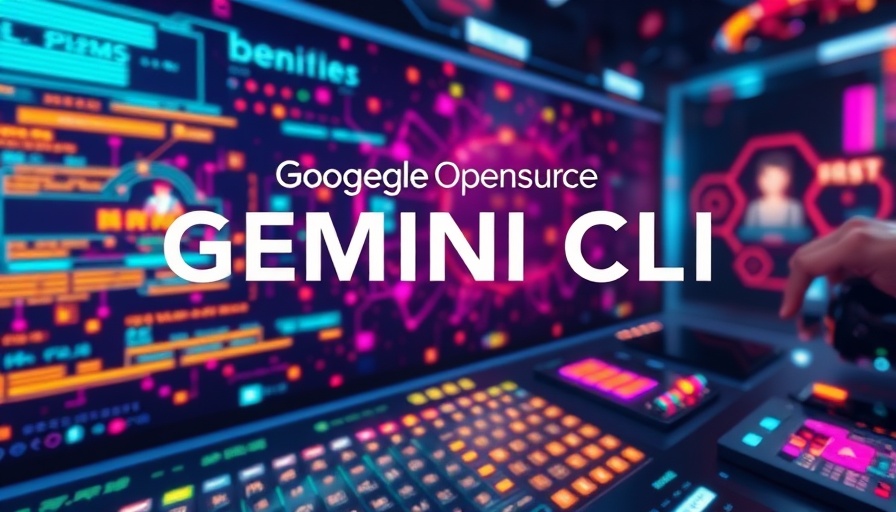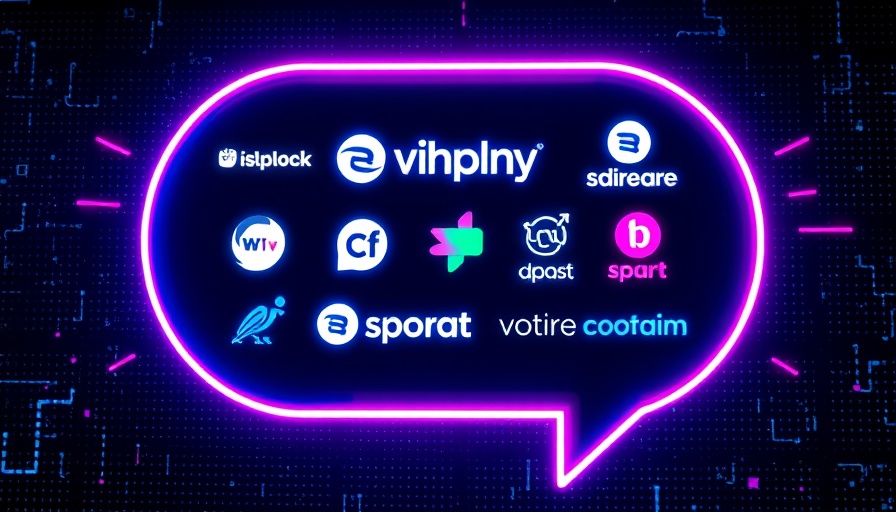
Gemini CLI: A New Era of Open-Source AI Tools
In the rapidly evolving landscape of technology, the introduction of Google’s Gemini CLI is like a breath of fresh air for developers and tech enthusiasts alike. As noted recently, this new open-source CLI tool aims to provide a free alternative to cloud code, enabling users to harness the power of the Gemini 2.5 Pro model without any cost. The Gemini CLI is revolutionizing how software is built and maintained, operating directly within your terminal to streamline coding, debugging, and automation processes.
In 'Gemini CLI: Google's NEW Fully Free Opensource Coding Agent! Beats Claude Code!', the video introduces a groundbreaking tool that encapsulates the essence of combining open-source capabilities with powerful AI. This exploration offers insights into its features and potential.
Unleashing Potential with Free Access
One of the standout features of Gemini CLI is its generous usage limits. Users can access up to 1,000 requests a day—an enticing offer for developers looking to expedite their projects. This accessibility encourages experimentation, enabling users to write code and troubleshoot dynamically using natural language. It's an opportunity for developers to enhance their productivity without the burden of additional costs.
A Seamless Installation Experience
Installing Gemini CLI is designed to be straightforward, requiring only Node.js version 18 or higher. This simplicity breaks down barriers for newcomers who may be intimidated by complex setups. With just a few commands, users can upgrade their coding environment and begin leveraging AI-driven insights immediately, showcasing how technology can be made more user-friendly.
Integration with Existing Tools
The integration of the Gemini CLI with existing IDEs, including the Code Assist extension, demonstrates the potential of AI in transforming workflows. This compatibility means that users can execute terminal commands directly alongside their coding efforts, making this tool versatile for collaborative projects or individual tasks. Such capabilities empower developers to create more efficient processes, shrinking project timelines and enhancing performance.
Ethics and Future Innovations in AI
As more developers adopt tools like Gemini CLI, it's essential to consider the ethical implications surrounding AI technologies. Questions arise about how AI should be utilized responsibly in coding and automation. The conversation regarding AI ethics is crucial as we advance—understanding how to ensure ethical use of AI will shape future innovations. This sentiment resonates strongly in tech hubs worldwide, highlighting that while tools like Gemini CLI offer tremendous benefits, they also come with responsibilities for users to navigate.
In conclusion, the advent of tools like Gemini CLI exemplifies the transformative impact of AI on our daily lives and professional efficiency. With its open-source model and commitment to free access, Gemini CLI not only empowers developers but also prompts broader discussions on responsible AI use. As these technologies evolve, they will undoubtedly influence industries and everyday practices, reinforcing the idea that AI can catalyze significant advancements in various sectors.
 Add Row
Add Row  Add
Add 




Write A Comment